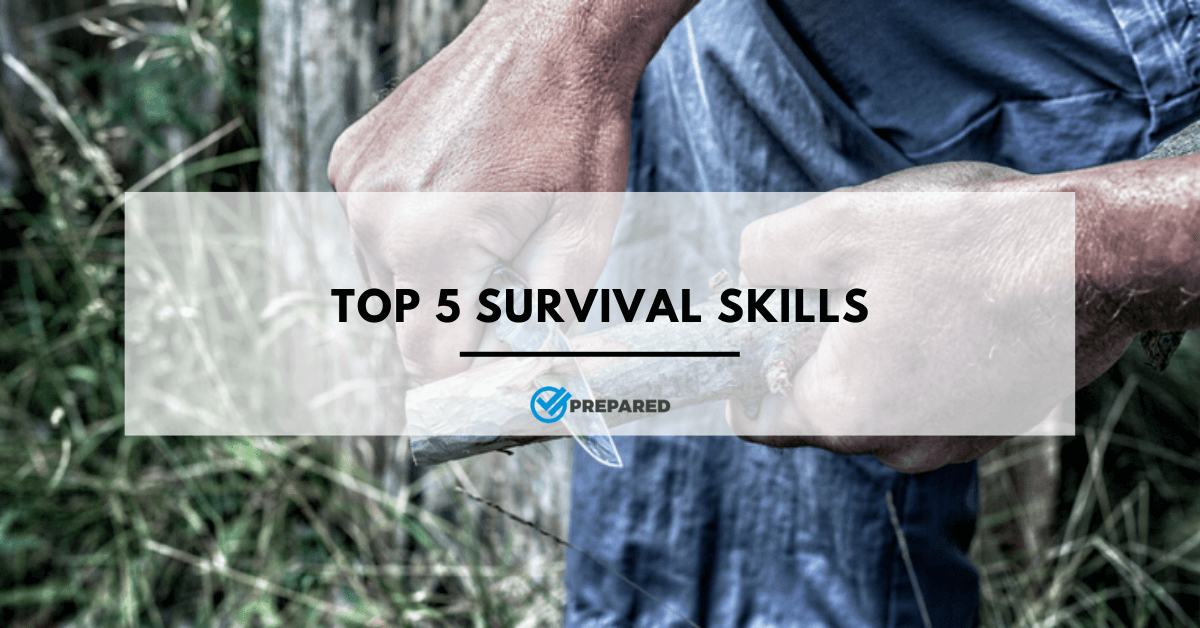All too often, I find that people focus on the wrong things in regard to survival. Survival is simple. Just do not die. It is not about having the latest and funkiest gear in your pack. It is not about knowing how to fight off a bear or how to kill a bird with a slingshot. Survival is about understanding and mastering the necessary survival skills that will help you stay alive.
This all comes back to the four pillars of survival. They include food, water, fire, and shelter. In addition, you may want to consider secondary priorities such as first aid, navigation, signalling, and self-defense. The most important thing to remember is that there are only a few things that could come between you and your life in most cases. If you learn a few basic survival skills and practice them constantly, you will be fine in most situations.
Fire Building
Fire is one of the most versatile tools that you have in a survival situation. It can help you purify water, cook food, stay warm, fend off predators, see at night, repel bugs, and even kill bacteria. Most importantly, a roaring fire is great to boost your spirits. However, building and maintaining a fire is a bit of an art. The first step is knowing how to collect fire materials. You will need dry materials, so it is best to look for them up off the ground. Dead branches are great for big and medium-sized materials. Bird’s nests, birch bark, and cattail fibres are ideal for a tinder bundle.
You need to know how much of each item to collect. The rule I follow is that you want enough tinder that you can barely fit both hands around the bundle. Then for kindling, I want enough that I can barely fit both arms around it. These are sticks that vary in thickness from ¼ inch to 1 inch. For larger wood, you want a pile that is about knee-high. The suggestion I have always heard about large wood for a fire is to get as much as you think you need and then double it.
For fire starting, stick to methods that require no fuel and that are relatively simple. I always keep a lighter and waterproof matches in my pack, but my ferro rod is my baby. It is waterproof, windproof, and lasts forever. I also like to have dry tinder with me such as char cloth or commercial tinder.
ALSO SEE: How To Start A Survival Fire
Water Purification
One of the essential survival skills you need to know is how to purify water. You can only survive in the wild without water for three days. In addition, most of the fresh water on our planet is tainted with bacteria and parasites that could leave you sick. You have to know several ways to purify water. Collecting rainwater or water from a spring are the two ways you can avoid this process.
ALSO SEE: Six Ways to Purify Water
Otherwise, you can use boiling, filtering, chemicals, ultraviolet light, or even the earth itself to purify water. It is important that you try to have materials with you to complete these purification methods. If you do not have these tools with you, you must be prepared to improvise with the materials around you.
ALSO SEE: Survival Water Purification Methods
Shelter Building
Without fire, you may only survive three hours when exposed to the elements. A shelter can protect you from the wind, cold, sun, and rain you may face. Very rarely will you have materials with you to build a shelter, so you must be prepared to use natural materials. Learn how to break poles between two tree trunks. Find out how to use the natural structure of trees to provide a canopy and help you create a frame without cordage.
The two most useful shelter types for survival are the lean-to and the debris hut. Take the time to practice building both of these shelters with no cordage. Use whatever materials you have around you. These shelters have kept me alive on several occasions.
ALSO SEE: Priorities When Building A Survival Shelter
Wild Edibles
Another one of the essential survival skills is to be able to find food. Many survivalists think that hunting, trapping, or fishing are the best ways to find food in the wild. However, they are all risky and sometimes dangerous. Your best bet to expend as few calories as possible and come home with food is to know your wild edibles. Nuts, berries, roots, and greens can keep you going with very little effort.
However, you have to know your plants to be sure you do not eat something poisonous.
ALSO SEE: Edible Wild Plants For Survival
Signalling
The easiest way out of a survival situation is to signal for help. If you know how to use mirrors, smoke, whistles, and other resources to signal for help, then you will find your way home quickly. Place yourself in areas where you are visible, and use bright colours to signal rescue personnel. If it is not windy, rely on non-natural sounds such as banging on metal or blowing a whistle.
Practice The Key Survival Skills
The most important thing to remember with survival skills is that practice is vital. If you are not completely comfortable with these tasks before you end up in a survival situation, you will struggle. However, if you can stay calm and rely on your experience, you will probably do just fine.

Chris was born and raised in South Africa and has worked in the field of risk management, organisational resilience, and business continuity for more than a decade. During his career he has seen how private and public sector organisations benefit from effective risk management and business continuity planning. Realising that families and communities can also benefit from the same tools, methodologies, and principles, he started Prepare with Foresight.
Prepare with Foresight was launched to assist individuals and families to have the peace of mind that they will be able to recover from and successfully adapt to the consequences of adverse events.

